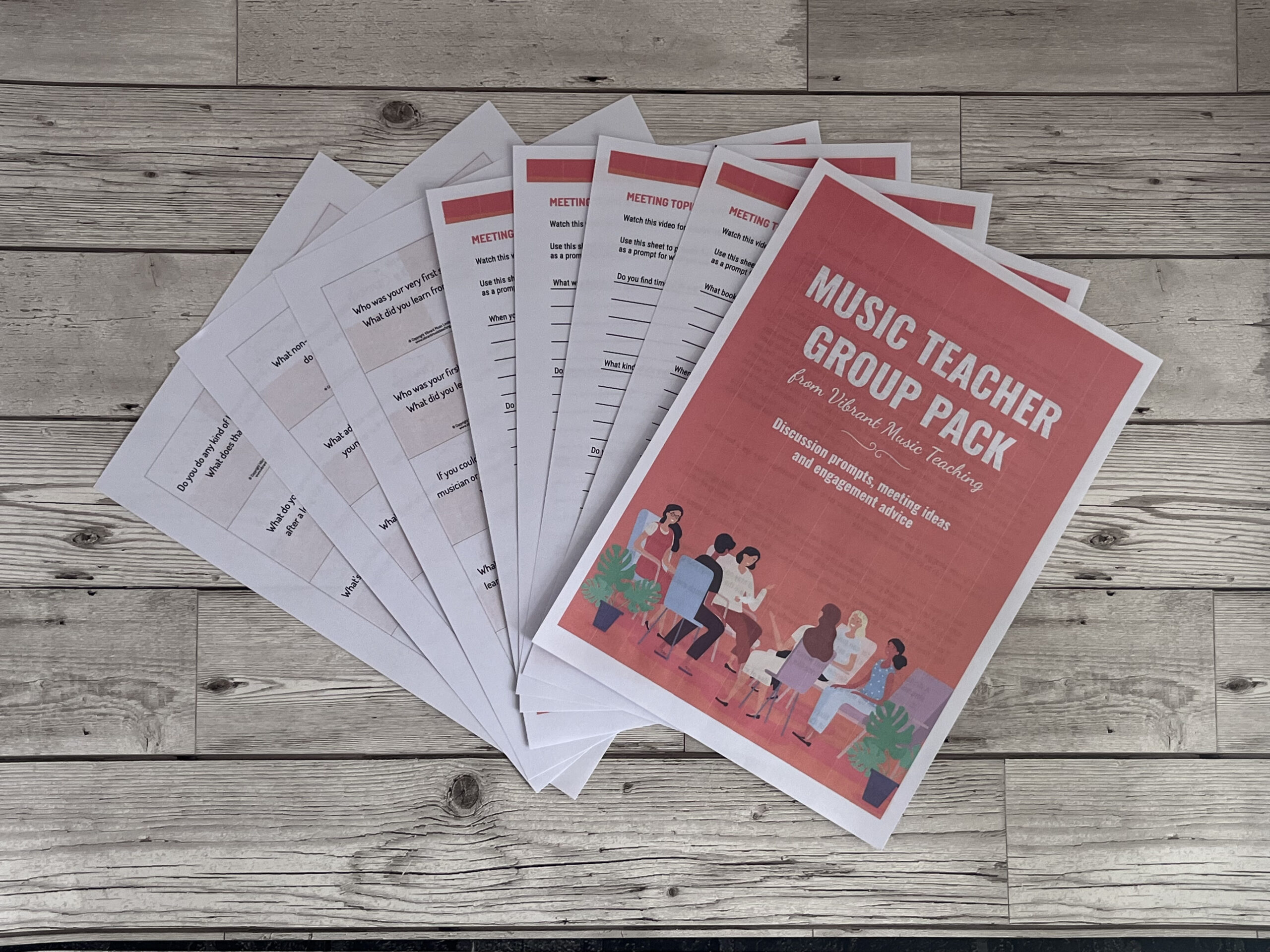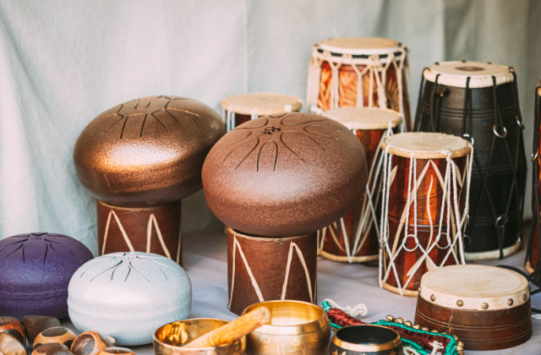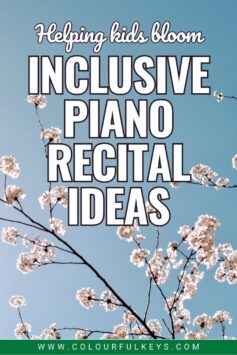
This article about hosting an inclusive piano recital was written by Samantha Rothschell. Samantha lives and teaches just outside of Nashville, Tennessee, USA. She holds a Bachelor of Music from Middle Tennessee State University. Samantha has taught for over 10 years in a variety of settings including public and private schools, private lessons, a homeschool co-op and class piano at the university level. You can find more information on her website.
My studio, while small, is constantly changing in demographics. Because our little community is close to Nashville, Tennessee (USA), it’s more diverse than you might expect. Finding ways to include everyone in performance opportunities can be tricky, but it’s so worth it for the students and their families.

The students I teach practise a variety of religions, and I also have those who don’t practise any religion at all. But religious differences aren’t the only factors to consider – students in my studio also come from a variety of world cultures.
Because I want to give all my students a rich, fulsome musical experience, I go through several steps when planning recitals.
Many of the live performances my studio has offered in the past provided excellent opportunities for diversity and inclusion. I hope you’ll employ some of these ideas in your studio, too.
Research Your Community
In order to make an inclusive piano recital happen, do a little research on your local community using the resources available to you.
Students & Families
First and foremost, include your students and their families in your planning.
From the very first interview, ask questions about any religious or cultural sensitivities you should be aware of. People are usually happy to answer respectful questions about their faith and practices.
Once you determine the range of your music students’ needs and traditions, you can begin researching ways to make your upcoming piano recital more inclusive.
Area Religious Institutions
Here in the Nashville area, we have a Hindu temple, several synagogues and some Buddhist temples in addition to the plethora of Christian denominations and organisations. Not all of these are open to the public, but many are. A quick Google search can at least tell you what is available in your area.
As an example, if you have a Sikh family in your studio and you aren’t familiar with that faith, you could consider sending the institution an email or giving them a phone call to plan a visit or a chat with an in-the-know community leader.
Online Piano Teacher Groups
If, like me, you’re originally from a less diverse, more rural area, take advantage of online groups. Two of my favourites are:
Use online groups like these as avenues to ask questions and gain understanding of cultures you may be unfamiliar with.

And if you’re a member of a group like the Music Teachers National Association (MTNA), you can find wonderful webinars and materials for learning more about the music of a variety of cultures.
Local Music Teacher Organisations
My local MTNA chapter is where I connect with teachers who are more experienced than I am and steeped in my specific local community. I’ve found that most veteran teachers are happy helping guide new teachers to carry on the craft.
Besides the general wisdom and support I receive from these teachers, they too have diverse studios, so I can pick their brains about new, interesting ideas for making my music recitals more inclusive.
If you don’t have a local music teachers group, why not start your own? Vibrant Music Teaching makes it easy for you with the Music Teacher Group Pack. Enter your info below, and you’ll receive a free copy in your inbox.

SUBSCRIBE TO THE NEWSLETTER AND GET THE MUSIC TEACHER GROUP PACK
Enter your details to subscribe to the newsletter for piano teachers with information, tips and offers; and get access to the composing project.
I hate spam as much as you do! I will only send you emails related directly to piano teaching and you can unsubscribe at any time.
Members of Vibrant Music Teaching can download the pack from the VMT Library. Not a member? You don’t know what you’re missing! Check it out and join today at vibrantmusicteaching.com.
Leverage Recital Themes
The amount of repertoire available for a recital can be overwhelming, but having a theme can help narrow your focus and guide your selections. A theme can also provide a launchpad for programs, invitations and decorations.
Centering on an overarching concept also helps my piano students and I learn more about each other so we can pull off a more inclusive recital. I like to ask my students (and myself!) questions such as:
- What are your interests?
- What connections can we make through the music you’ve chosen?
- How can the music you perform celebrate your family’s traditions and culture?
Gaining insight from my students to steer possible recital themes also works to get students more excited and motivated about the upcoming performance.
Nature
So much music from the Western classical tradition is inspired by nature, so why not take advantage of it? Whether you use the original versions or simpler arrangements, pieces that focus on nature provide a lovely recital setting. For example:
- Debussy’s Clair de Lune
- Edward MacDowell’s To a Wild Rose
- Beethoven’s Moonlight Sonata
- Catherine Rollin’s Rainbow Fish
- Vivaldi’s The Four Seasons
You could couple the recital with a nature-oriented “field trip” or Earth Day service project, or simply hold the recital outside on your lawn or a nearby park to celebrate the nature in your community.
The (Classical) Eras Tour
For this year’s recital, I’m taking inspiration from Taylor Swift’s Eras Concert Tour, which celebrates her decades-spanning catalogue of works.

Instead of performing Taylor’s songs, though, my recital will focus on the “eras” of music within the Western classical tradition. When introducing their pieces, my students will talk about how trends from these eras are reflected in their chosen performance music.
Folk Music
Another theme to foster an inclusive piano recital is to celebrate the tradition of folk music.
Have students choose a folk song from their family heritage. For instance, I have Sicilian heritage so my daughter might choose to perform a tarantella while my South Pacific Islander student might choose an arrangement of Aloha ‘Oe.
A good way to promote awareness of other cultures is to flip this concept on its head. Rather than choosing from their family heritage, have students choose pieces from a culture other than their own.
Instead of a tarantella, my daughter could perform Hotaru Koi, which is a Japanese children’s song about fireflies. While we aren’t of Japanese descent, she could gain an appreciation for this culture through its music.
Non-Western Classical Traditions
The Western classical tradition is just one of four classical traditions in the world. Don’t forget there are also the Indian, Chinese and Islamic traditions.
Introducing students who are well-versed in the Western major and minor modes could be broadened by pieces from these other cultures. For example, pieces from the East Asian tradition would challenge students’ understanding of the pentatonic scale, as it is slightly different from the Western version.

An emphasis on non-Western traditions can also include jazz. With its roots in African folk music, a study in jazz could challenge students’ understanding of what constitutes a chord or how many extra intervals could be added.
Winter Holidays
Hosting a Christmas recital may prove problematic if you’re trying to include students of other faiths. However, there are many holidays celebrated between September and January that aren’t rooted in Christianity.
If you choose to have a “Winter Holidays” recital instead of a Christmas-themed one, I encourage you to look into songs and pieces used during Diwali, Hanukkah, New Year’s, Kwanzaa, etc. Try going to a site such as Sheet Music Plus. In the search bar, type the holiday you’re looking for followed by your instrument (e.g. Hanukkah piano, Diwali piano, Halloween guitar, etc.). You’d be surprised how many books and scores there are readily available to explore.
As an added bonus, you could schedule a “Winter Holidays” recital for mid- to late-January instead of cramming it into an already busy Christmas season. Win win!

How can you make your upcoming piano recital more inclusive?
I encourage you to be brave in choosing piano recital themes that are more inclusive. Share your experiences in the comments below. 🙂
For more ideas and guidance when planning your recital, visit the ‘Recitals’ section of Colourful Keys’ Studio Business page.